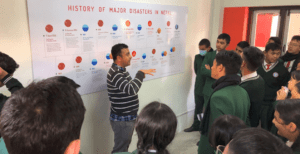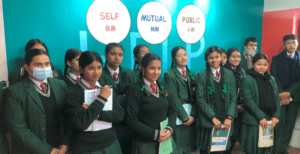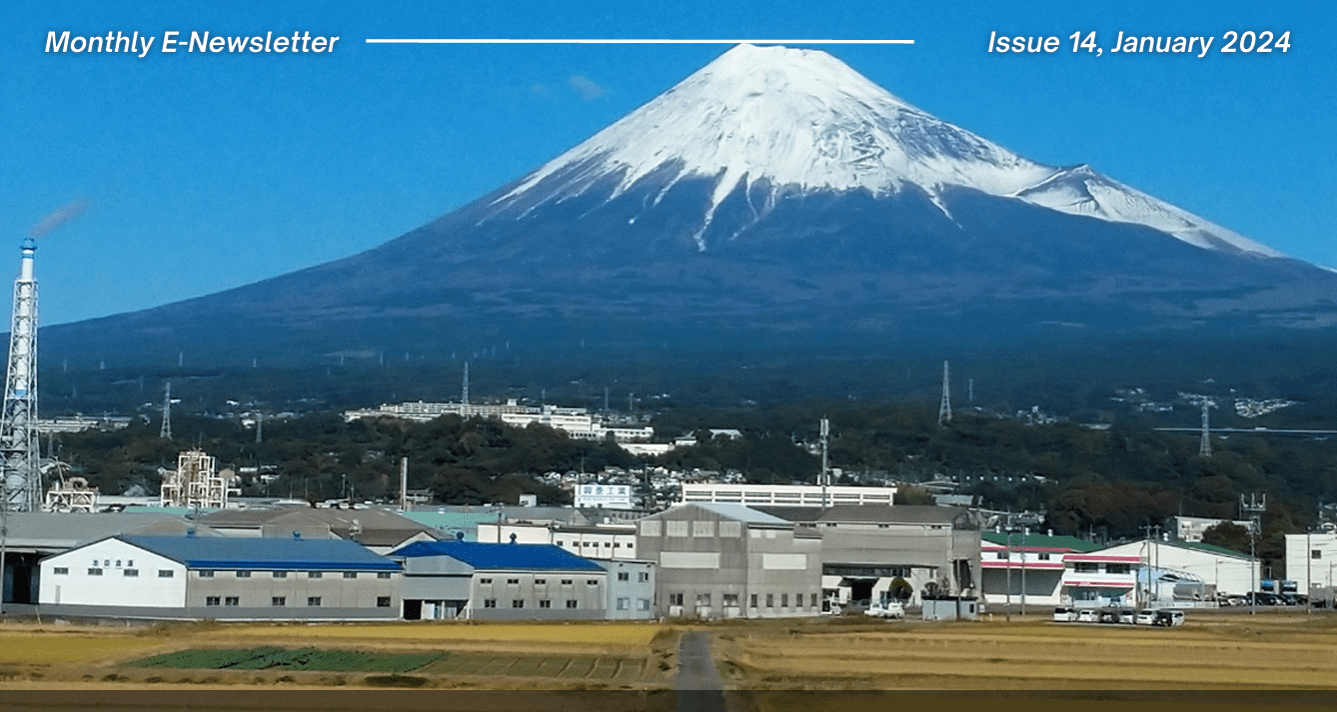Coming Up This Year
- February 15-17: Workshop on Psychological First Aid, Lalitpur
- June: Monitoring of disaster prevention education activities, Nepal
- June 16: Understanding Risk Forum, Himeji, Japan (Organized by GFDRR)
- September 18-21: 16th CityNet Disaster Cluster Seminar, Taipei
- October 14-18: Asia-Pacific Ministerial Conference on Disaster Risk Reduction, Manila (Organized by UNDRR)
The above programs are scheduled to be organized this year where CityNet Disaster Cluster or its member(s) plan to take part in organizing sessions with the host institutions. Detailed announcements will be circulated when confirmed. Aside from the above, other programs and activities are still in planning and will be announced in due course.
(The following are excerpts from this month’s newsletter, to view in full click here)
I. DRR Learning Center in Lalitpur Continues to Attract More Visitors
 |  |
Around 90 students made a study visit of Mitra Disaster Risk Reduction Learning Center (MDRRLC) on 18th and 19th of December. The students from Occidental Public School in Kathmandu visited the center for two consecutive days bringing three groups. The secondary level students were first given opportunity to practice earthquake drill on the premises of MDRRLC. They were first briefed about the origin, objective and activities of the the center. IN the adjoining room, they were then introduced to the time line that represents major disasters in Nepal. In the same room, exhibit about the ‘before’, ‘during’ and ‘after’ disasters like fire, thunder and storm, earthquake, rain and flood has also been displayed in the form of posters. Other practical activities included first aid protocol for fractures and bleeding. The exhibit room of the center includes Nepal made disaster prevention education tools on earthquakes and fires which were developed as a part of the JICA grassroots cooperation project since 2017. The exhibit also showcases household items that are used for disaster prevention and during disasters in Japan. The center was established in 2019 with a private initiative.
III. Lessons to Learn from Noto Peninsula Earthquake in Japan
The first day of the year is supposed to be a celebration to start off a new year. Instead, on January 1, 2024, a strong M7.6 earthquake at 16:10 badly shook Noto Peninsula located on the Japan Sea coast. The earthquake also caused tsunami waves up to 5 meters in some locations washing away homes and properties. The fire following the earthquake at a shopping district also completely incinerated many homes and buildings.The casualty as of this writing is more than 235 with several still missing. The pictures from ground zero shows this was hardly a usual earthquake. Collapsed structures, badly damaged roads, landslides and tsunami have severely hampered search and rescue missions as well as relief work. As a result, deaths resulting from secondary disasters are rising. This was exactly the scenario 29 years ago in Kobe during Hanshin Awaji Earthquake. Despite high levels of public awareness and preparedness on disasters, this disaster questions whether the preparedness and countermeasures were sufficient from the national authorities and if response could have been expedited with more professional manpower on the ground. This incident has proven that action-based preparedness plans customized against multiple disasters, weather and mobility conditions are critically important particulalry in rural areas.


